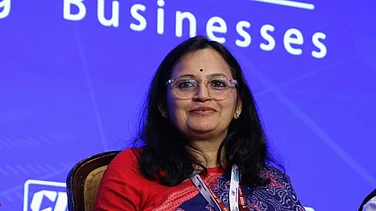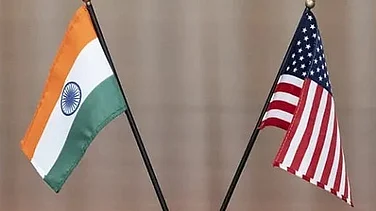The interim government of Bangladesh seeks to resolve all trade problems with India after New Delhi has placed curbs on Dhaka's exports via land ports. The Ministry of Commerce and Industry issued the restrictions on Saturday following directions from the Directorate General of Foreign Trade (DGFT).
As per reports, an adviser to the Interim government of Bangladesh, led by Nobel Laureate Muhammad Yunus, said that Bangladesh wants to discuss all issues with India.
"We do not know anything officially about India's steps yet. We will be able to take action after we know officially. If any problems arise, both sides will discuss and try to resolve them," Sheikh Bashir Uddin, Commerce Adviser of Bangladesh interim government, told the reporters told reporters at the Secretariat, according to news wire UNB.
“We’ve learned from social media and media outlets that India has taken certain decisions affecting specific land ports, including Akhaura and Dawki, as well as some border areas,” he added.
When asked whether recent developments could hurt Bangladesh’s exports, Bashir Uddin responded that not all sectors are impacted. He said that a significant share of their exports comes from the garment industry, where Dhaka focuses on maintaining a competitive edge. “India also has a strong textile industry, yet they import our products based on our capabilities,” he underlined.
He expressed optimism that the trade would continue, saying, “This is in the interest of consumers and production sectors on both sides.”
India-Bangladesh Trade Issue
India has imposed new restrictions on imports from Bangladesh through land ports, affecting goods worth around $770mn. The move limits several key Bangladeshi products, including readymade garments, processed foods, and plastic items, to specific sea ports or bans them entirely from entering India via land routes.
ANI highlighted that since late 2024, Bangladesh has introduced a series of restrictions on Indian exports. These include a ban on Indian yarn imports through major land ports since April 2025, stricter curbs on rice shipments, and bans on paper, tobacco, fish, and powdered milk imports. Dhaka also imposed a transit fee of 1.8 taka per tonne per kilometre on Indian goods passing through Bangladesh.
Experts claimed that India's measures are not to isolate Bangladesh but a direct response to Bangladesh’s increasing trade barriers against Indian exports and a shift in Dhaka’s diplomatic focus towards China.





























